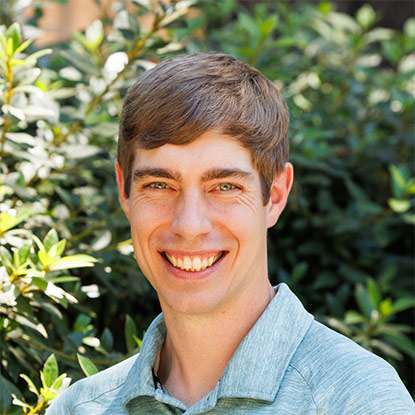Cultivating a Convivial Classroom in the Age of AI

- This event has passed.
Cultivating a Convivial Classroom in the Age of AI
September 10, 2025 @ 12:00 pm – 1:00 pm EDT
How the Technological Critics of the 20th Century Can Help Us Wisely Navigate Generative AI in Education

Dr. Josh Brake, Associate Professor of Engineering at Harvey Mudd College
Description
Generative AI is dominating the conversation around education today. Sentiments span the spectrum from deeply felt anxiety to unbridled optimism. Meanwhile, individual educators and students are searching for solid footing as they seek to understand generative AI and its implications. While there is no shortage of books and blogs offering suggestions for how we ought to respond, these perspectives often focus narrowly on the specific technology of generative AI without considering its broader historical, social, and technological context. Perhaps surprisingly, some of the most insightful writing about AI was published over fifty years before the phrase artificial intelligence was even coined. This collection of technological critics—writers and thinkers like Neil Postman, Jacques Ellul, Marshall McLuhan, Ursula Franklin, Lewis Mumford, Ivan Illich, and C. S. Lewis—offers us a broader aperture through which to see education, technology, and their intersection. In this talk, we will explore what these thinkers have to offer us as we strive to build a solid foundation and chart a wise path forward in a rapidly evolving landscape.

About the Speaker
Dr. Josh Brake, Associate Professor of Engineering at Harvey Mudd College
Josh Brake is an Associate Professor of Engineering at Harvey Mudd College. He holds a Ph.D. and M.S. in Electrical Engineering from the California Institute of Technology and an M.S. and B.S. in Engineering with an Electrical Concentration from LeTourneau University. He is the principal investigator of the Harvey Mudd Biophotonics Laboratory, where he has the privilege of guiding a group of talented and motivated Mudders to build optical tools for biomedicine.
In addition to his teaching and research activities on campus, Josh writes The Absent Minded Professor, a weekly Substack about technology, education, and human flourishing. His weekly manifestos often orbit around his core conviction that the builders of the future must be deeply shaped by philosophy and the humanities in order for us to cultivate a flourishing future together. He is also a Venture Partner with Praxis, helping to advance redemptive quests to address the major issues of our time.
Josh lives in Southern California with his wife and three young children. On evenings and weekends, you’ll often find him biking around town with the kids on the back of his cargo e-bike or making pizza in the Ooni. Except, that is, for Monday evenings. On Monday evenings, when the kids are in bed and the house is quiet, you’ll find him head down at the keyboard, feverishly cranking out his next blog post.

